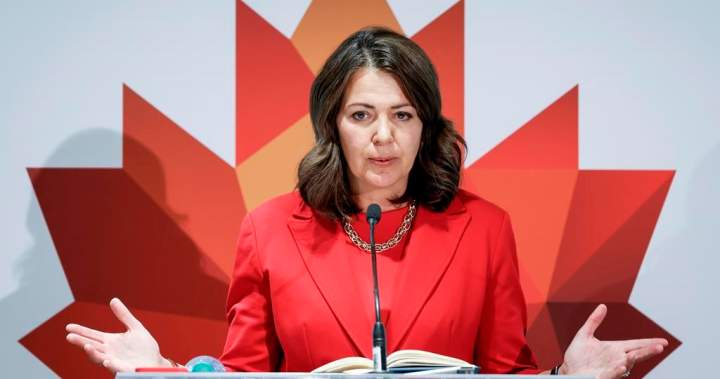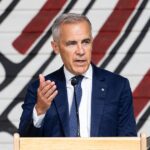The Alberta government quietly adjusted an online questionnaire about economic priorities this week, after facing intense criticism that the “Alberta’s Next” panel survey seemed designed to elicit predetermined responses rather than genuine public feedback.
I’ve been tracking this consultation process since Premier Danielle Smith announced it in January. The premier has repeatedly framed the initiative as a way to hear directly from Albertans about their vision for the province’s future. But when the survey launched last week, many Albertans found themselves frustrated by what they called “leading questions” and limited response options.
“It felt like I was being guided toward supporting the government’s existing agenda rather than truly being asked what I thought,” said Edmonton resident Kathryn Mercer, who completed the survey before the changes were made. “There was no way to suggest priorities outside their pre-selected options.”
The controversy centers on several questions that initially offered respondents only UCP-friendly policy choices. For example, one question asked participants to rank economic priorities from a list that heavily featured traditional energy development and regulatory reduction – core UCP positions – while omitting options like renewable energy investment or economic diversification.
After complaints flooded social media and opposition offices, the government modified the survey to include more diverse response options. Service Alberta confirmed the changes in an email statement, saying the adjustments were made “to ensure all Albertans feel their priorities can be reflected in their responses.”
NDP Opposition Leader Rachel Notley wasn’t impressed by the edits. “This is consultation theatre, not genuine engagement,” Notley said during a press conference Wednesday. “Albertans deserve better than rigged surveys designed to manufacture consent for decisions that have already been made.”
The Alberta Federation of Labour also criticized the survey process. “Working Albertans want to talk about jobs, affordability, and public services,” said AFL president Gil McGowan. “But the original survey seemed designed to steer people toward supporting corporate tax cuts and deregulation.”
Recent polling from Janet Brown Opinion Research suggests Albertans’ actual priorities might not align with the government’s focus. Their February survey found healthcare (27%), cost of living (24%), and education (15%) topped Albertans’ concerns, while “economic freedom” – a centerpiece of Smith’s rhetoric – ranked significantly lower.
The “Alberta’s Next” panel has been allocated $2.5 million in provincial funding according to budget documents, with activities planned throughout 2024. The consultation includes the online survey, town halls, and a final report expected before year’s end.
Political scientist Duane Bratt from Mount Royal University says the survey controversy highlights broader concerns about the UCP government’s approach to public engagement. “When you design consultation processes that seem intended to validate decisions you’ve already made, you undermine public trust,” Bratt explained. “The rapid edits to this survey suggest the government recognized they’d overplayed their hand.”
For regular Albertans like Calgary nurse Sanjay Gill, the survey debacle reinforces cynicism about government consultations. “I want to believe my input matters,” Gill told me at a community event in Forest Lawn. “But when the questions are structured to push me toward certain answers, it feels like my voice isn’t really being heard.”
Premier Smith defended the consultation process during an unrelated press conference in Red Deer on Thursday, insisting the survey is just one element of a broader engagement strategy. “We’re listening to Albertans through multiple channels,” Smith said. “The online questionnaire is one tool, but we’re also holding town halls and stakeholder meetings across the province.”
The online survey remains open until April 26th, with Albertans still able to participate despite the ongoing controversy. Government officials say the revised version offers more balanced response options while maintaining the core focus on economic prosperity.
Whether these adjustments will salvage public confidence in the consultation process remains to be seen. What’s clear is that Albertans are watching closely – and they expect more than token gestures toward genuine engagement from their government.
As the “Alberta’s Next” panel continues its work throughout 2024, the question lingers: Will this $2.5 million initiative produce meaningful dialogue about Alberta’s future, or will it simply reinforce directions the government had already chosen? For many Albertans filling out the revised survey this week, the jury is still out.






